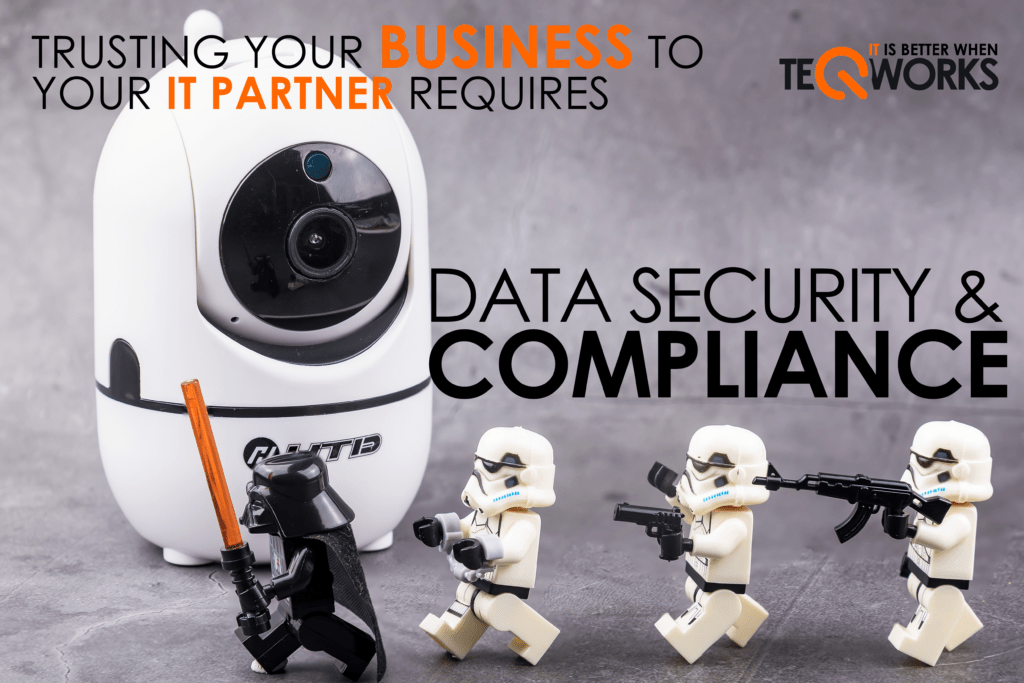Building trust between an outsourced IT partner and your business is crucial for a successful and productive working relationship.
You need your partner to provide DATA SECURITY and COMPLIANCE best practices to ensure your business is protected from unauthorized access, data loss, and security breaches.

In this digital age, data security and compliance are crucial for small businesses for several reasons.
- First, protecting customer and employee data from breach and unauthorized access helps build trust and credibility, enhancing your business’s reputation.
- Second, compliance with protection guidelines (like HIPAA and GDPR) of data storage (files and documents, databases) and transmission (sending emails, texts, file sharing) avoids legal penalties and financial losses.
- Third, breaches can lead to financial and operational disruptions, damaging your business’s stability, reputation, and reliability.
- Lastly, secure date practices safeguard intellectual property and sensitive business information from competitors and cybercriminals, ensuring long-term success.
Your IT partner should demonstrate a strong commitment to protecting your sensitive information, adhering to industry regulations, and implementing best practices for cybersecurity.
Beyond normal IT support, discuss with your technology security partner how they help you with:
Risk Assessment: Conducting a thorough assessment of your business’s data infrastructure – how you create, store, and send information – to identify vulnerabilities and risks.
Implementing Security Measures: Setting up firewalls, encryption, multi-factor authentication, and other security protocols to protect data from unauthorized access.
Regular Monitoring: Continuously – 24×7 – monitoring networks, systems, and data access for any suspicious activities or breaches.
Data Backups: Establishing regular data backup processes to ensure data recovery in case of data loss or breach. This includes addressing retention policies, protection of backed up data, and ensuring backups are tested and restorable.
Compliance Guidance: Ensuring the businesss follows relevant data protection regulations and industry standards, avoiding legal consequences.
Employee Training: Providing guidance and training to staff on security best practices and how to handle sensitive data appropriately.
Incident Response Planning: Developing a plan to respond effectively in case of a security breach, minimizing potential damage.
Secure Data Storage and Transmission: Providing guidelines and solutions for protecting all the business’s data, including file storage, transmission and sharing, and the passwords used to secure systems.
By outsourcing these responsibilities to a trusted and skilled IT Partner, your business can focus on core operations while ensuring that data security and compliance remain a top priority. Ask what measures, methodology, and solutions IT provider offers to address your data security and compliance concerns.
